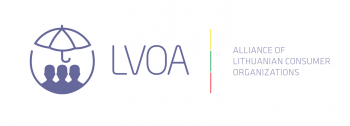Press release
Vilnius, Lithuania | 29 October 2018
European consumer organisations have expressed worries related to the proposed new directive currently being discussed at the European Parliament. Part of the European Commission’s package to tackle a high level of non-performing loans (NPLs)—namely the proposed directive on credit servicers, credit purchasers, and the recovery of collateral—puts too much risk on consumers, the Alliance of Lithuanian Consumer Organizations (ALCO), says.
“The proposal aims at creating a Europe-wide secondary debt market. This will encourage international debt purchase funds and debt service operators, mostly from the USA, to enter the European market and buy large amounts of accumulated distressed debt portfolios from European banks. By using a ‘European passporting’ scheme, these funds, often called ‘vulture funds’ for their practices, will be allowed to operate in all EU countries, irrespective of their country of registration”, Kęstutis Kupšys, a member of the board of ALCO, said at a recent press conference in Vilnius, Lithuania.
He believes that we “have too many bad examples of how funds that accumulate large amounts of NPLs deal with distressed borrowers. If their often very unethical practices are spread cross-border, consumers are left helpless, as there will be quite a high barrier to defend their rights in another country.”
ALCO stands strongly against “European passporting” for this type of service. It also proposes putting into the directive concrete measures to help distressed borrowers defend their rights in case of debt transfer to third parties.
Lithuanian banks have approximately 330 million euros worth of NPLs (household loans, excluding business-related distressed debt). This amount equals only 3.6 per cent of all household banking loans. Two per cent of all consumer debt is delayed in payment for more than 90 days.
“European authorities expect that the opening of a secondary NPL market should encourage lending to businesses and consumers. This is true only from a mechanistic point of view, as if someone was playing with numbers on an Excel sheet. However, if we think from a behavioural point of view, the sheer existence of an eventual threat from vulture funds may put a brake on many consumers’ borrowing plans. The EC initiative may have very unintentionally adverse effects not leading to increased lending or economic growth at all. Paradoxically, for many households it may mean a diminished appetite for loans”, Kupšys warns.
Contact: Kęstutis Kupšys, Member of the Board, Alliance of the Lithuanian Consumer Organizations | +370.698.76.444 | kestutis.kupsys@lvoa.lt
